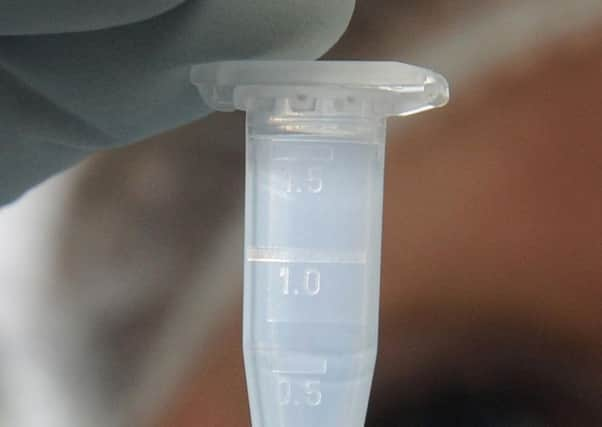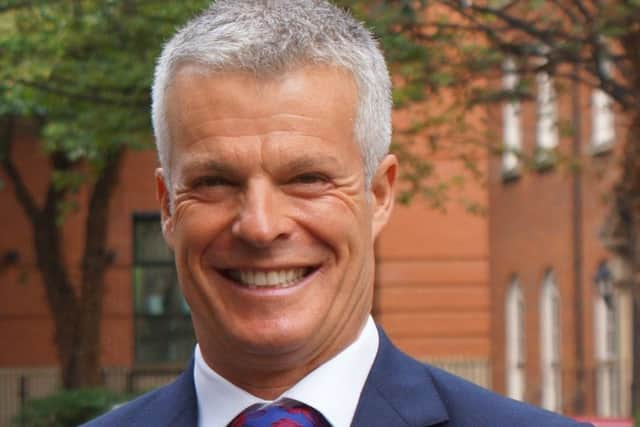Thousands of drug-driving convictions linked to forensic scandal '˜may be set aside'


More than 10,000 criminal cases, largely relating to drug-driving offences, have been thrown into doubt by an investigation into alleged data manipulation of results by a pair of scientists at the Manchester laboratory of a company called Randox Testing Services. Randox’s services were used by all of Yorkshire’s police forces and dozens of others around the country.
Of the 10,000 cases affected, around 7,500 involve drug-driving, but there are approximately a further 275 murders, 150 road deaths and 1,000 sex offence cases, along with 500 sudden deaths affected.
Advertisement
Hide AdAdvertisement
Hide AdAround 5,300 of those now in question have already resulted in a conviction, 4,800 of which are road traffic cases.


Retests of the affected results have been ordered and could take up to three years to complete. But lawyers Nick Freeman and Alison Ashworth, who both specialise in driving offence cases, say that in addition to the issues relating alleged data manipulation that came to light earlier this year, the processes used by Randox for analysing drug driving samples prior to May 2016 have been called into question.
Both say the situation increases the likelihood of courts viewing all the results that have required retests as being unreliable.
In contrast with other labs, which would take two separate samples from the vial of driver’s blood to get an aggregate result, Randox tested single samples.
Advertisement
Hide AdAdvertisement
Hide AdIn 2016, Suzette Davenport, the National Police Chiefs’ Council lead for roads policing, wrote to police forces to warn them the method being deployed by Randox could lead to “increased challenges in court”.


Randox dropped the method in May 2016 to use the same process as other providers but the company said that decision did not reflect on the appropriateness of the prior procedure.
Mr Freeman, who is known as ‘Mr Loophole’ for his work in clearing stars like David Beckham of driving charges, said: “I’m of the view all 10,000 cases where there have been convictions will be set aside because of the process that was deployed in analysing the samples of blood. Unless they are able to satisfy the courts they have followed the correct process, the readings are unreliable.”
In February, the day after it was revealed two Randox employees had been arrested, the CPS discontinued a drug driving case after Mr Freeman challenged the results of a blood sample sent by police to Randox. It came after an expert employed by Mr Freeman’s firm had reviewed results provided by Randox and wrote the CPS to suggest they were likely to be unreliable.
Advertisement
Hide AdAdvertisement
Hide AdMr Freeman has now written to Home Secretary Amber Rudd to ask for a public inquiry into the wider scandal to be ordered but says he is yet to receive a response.
Miss Ashworth said she believes all convictions in cases suspected to be affected by data manipulation that have been also affected by the single sample issue may end up being set aside as courts will not be able to be satisfied the original results were reliable.
“I would challenge the prosecution evidence in any of the 10,000 cases. In my view, this is compromised evidence which should not be relied on,” she said.
“From a defence perspective, I would suggest that all of the cases affected should be challenged as serious concerns can be raised over the quality of the evidence used to secure the convictions.”
Advertisement
Hide AdAdvertisement
Hide AdShe added that she has “several serious concerns about the retesting process”, including the integrity and viability of specimens sent for reanalysis so long after donation.
She said: “I would advise anyone who was convicted on the basis of evidence from Randox during the relevant period to appeal.”
Earlier this month, it was revealed a North Yorkshire chef who lost his job after being wrongfully convicted of drug-driving is to sue Randox.
Billal Hartford, 21, was banned from driving for a year after a blood test indicated he had been smoking cannabis. But his retested sample came back clear and his conviction has now been quashed.
Advertisement
Hide AdAdvertisement
Hide AdAn NPCC spokesman said: “Following an investigation into alleged data manipulation by individuals working at Randox Testing Services, the NPCC is working alongside the Home Office, Forensic Science Regulator, Crown Prosecution Service and representatives from the forensic service providers to retest samples that may have been affected.
“The independent retesting programme adheres to all legal and scientific regulations and advice provided by the Forensic Science Regulator and the United Kingdom Accreditation Service (UKAS).
“The retesting is into alleged criminal manipulation by individuals not as a result of testing methods used by RTS.”
A Randox spokeswoman said: “As reported by the NPCC on November 21st 2017, retesting of samples to date has not resulted in any crime case being overturned. Less than 10 per cent of drug-driving cases have been discontinued.
Advertisement
Hide AdAdvertisement
Hide Ad“The single extraction method was accredited by UKAS and was therefore cleared by the appropriate authorities for forensic use in the UK, and we were fully satisfied by its use. We agreed to adjust this method in May 2016 to adjust to wider practice by Forensic Science providers within the UK, and that decision does not reflect on the appropriateness of our previous method.”